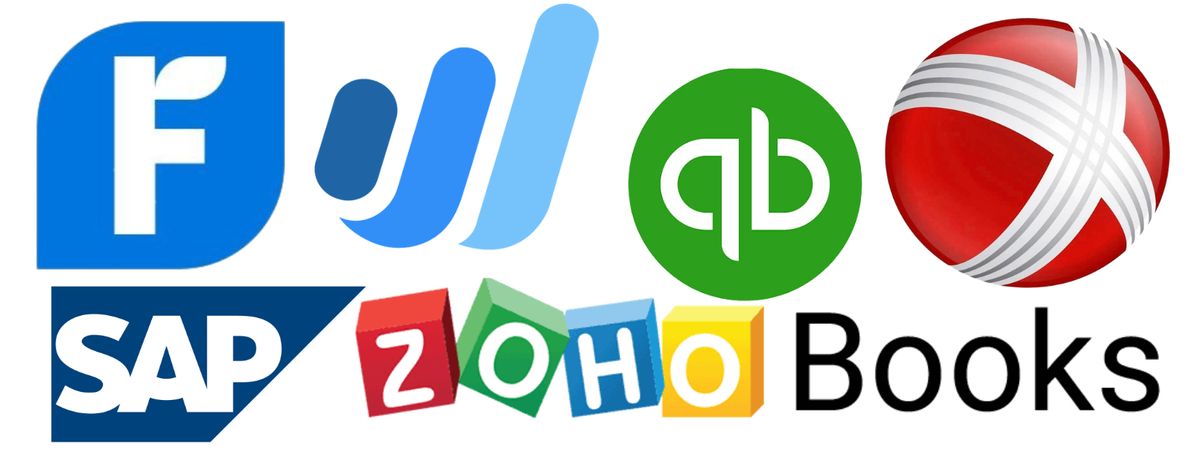This article serves as a guide for small business owners looking to choose the most suitable accounting software for their specific needs.

GUIDE FOR SMALL BUSINESS: HOW TO CHOOSE ACCOUNTING SOFTWARE

In the fast-paced world of small business management, efficiency and accuracy in financial management are crucial for success. As a small business owner, one of the most significant decisions you'll make is selecting the right accounting software. A good accounting software not only simplifies your financial tasks but also provides valuable insights into your business's health. This article will guide you through the process of choosing the best accounting software for your small business.
Key Features to Look For:
User-Friendly Interface: - Opt for accounting software that has an intuitive and user-friendly interface. Small business owners often don't have the luxury of time to navigate complex systems. Look for software that allows you to easily understand and execute basic accounting functions.
Scalability: - Choose accounting software that can grow with your business. Scalability is crucial as your business expands, and you don't want to go through the hassle of migrating to a new system every few years. Ensure the software can accommodate an increasing number of transactions, users, and features.
Cloud-Based Accessibility: - Cloud-based accounting software allows you to access your financial data from anywhere with an internet connection. This flexibility is especially important for small business owners who are constantly on the move. Cloud-based systems also provide automatic updates, ensuring you always have the latest features and security patches.
Invoicing and Billing: - Efficient invoicing and billing features are essential for small businesses. Look for accounting software that allows you to create professional invoices, track payments, and automate recurring billing processes. This can save you time and improve cash flow management.

Expense Tracking: A robust expense tracking system is vital for managing your business finances effectively. Choose software that allows you to categorize expenses, capture receipts digitally, and reconcile transactions seamlessly. This feature is crucial for accurate financial reporting and tax preparation.
Integration with Other Tools: Consider accounting software that integrates seamlessly with other tools you use for your business, such as payment processors, e-commerce platforms, or customer relationship management (CRM) systems. Integration reduces manual data entry and ensures data consistency across your business applications.
Reporting and Analytics: Analytical tools are essential for gaining insights into your business performance. Choose accounting software that provides comprehensive reporting and analytics features. This will help you make informed decisions and identify areas for improvement.
Security and Compliance: Prioritize the security and compliance features of the accounting software. Ensure that it meets industry standards for data protection and compliance with tax regulations. Security is crucial when dealing with financial data, and a reputable accounting software provider will prioritize this aspect.
Recommended Accounting Software for Small Businesses:
Quickbooks - QuickBooks is a widely used accounting software that caters specifically to small businesses. It offers a user-friendly interface, strong invoicing capabilities, and integrates with various third-party applications.
Xero - Xero is a cloud-based accounting solution known for its accessibility and collaboration features. It is particularly suitable for businesses that require real-time collaboration between accountants and clients.
FreshBooks - FreshBooks is an excellent choice for small service-based businesses. It provides features for invoicing, time tracking, and expense management. The platform is user-friendly and designed with non-accountants in mind.
Wave - Wave is a free accounting software that offers essential features such as invoicing, expense tracking, and financial reporting. It is suitable for freelancers and small businesses with straightforward accounting needs.
Zoho Books - Zoho Books is part of the Zoho suite and offers a comprehensive accounting solution. It provides features like automation, project tracking, and inventory management, making it suitable for a variety of small businesses.

Conclusion
Choosing the right accounting software for your small business is a critical decision that can significantly impact your efficiency and financial management. Consider your business's specific needs and growth trajectory when evaluating different accounting software options. By prioritizing user-friendliness, scalability, and essential features, you can find a solution that streamlines your financial processes and contributes to the success of your small business.
